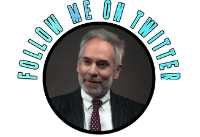In my campaign to save the world by spreading the word, I am quoting a passage from Life After The State (which I also quote in Bitcoin: the Future of Money?). It describes the way our modern system of money and banking (electronic, debt-based, fiat currency combined with fractional reserve lending) perniciously redistributes wealth from the many to the few:
Imagine a tiny economy. There are 20 people in it. Of these, ten each have $1 in cash, so there is $10 in the entire economy. The other ten people each have a house – these are the only assets in the economy and are each priced at $1. People quite happily buy and sell these houses for $1 each. If more houses appear in this economy, but the amount of money stays finite, the cost of houses will fall. But let us assume for now no new houses enter the economy.
One person – Mr King – is suddenly able to magically create another $10 from nowhere. He decides to go out and spend some of this new money. He buys a house for $1, which the vendor is happy to sell because, based on the knowledge the vendor has, that is the fair market price. Except that it isn’t because there is no longer $10 in the economy, but $20. At $1 the vendor has sold his house too cheap – and he has received devalued money in exchange.
Mr King then decides to outbid the others and offers $1.50 for another house. This vendor is delighted, sells, probably feeling rather clever, and makes off with $1.50, but even he has sold his house too cheap. Mr King, meanwhile, is developing a nice little property empire. The other vendors hear houses are now trading for $1.50 and now expect that price, which Mr King is happy to pay. In other words, house prices are gradually rising to reflect the new money in circulation.
There are some big losers in this process – the people who each had $1. The purchasing power of their money is now no longer enough to buy the house they were previously able to buy. Ultimately, their purchasing power will halve because there is twice as much money in circulation. They haven’t acted imprudently in any way – they haven’t even acted – yet they are made poorer by this process of other people creating new money.
What about the people owning houses? How have they done? Eventually, houses prices in this economy will rise to $2 – there are ten houses and $20 in circulation. The price of their houses should rise to reflect this extra money in circulation, so – as long as they didn’t sell – they come out even. They might think they are richer because their house now costs $2, but this is a delusion: it is the same house. They have just survived the inflation, nothing more. If, however, they were one of the early vendors who sold for $1 or $1.50, now they cannot afford to buy back the house they previously sold. They are ‘priced out’ and poorer.
Meanwhile, Mr King has done extremely well. He benefits, of course, as the recipient of a load of newly created money. But he was also able to buy houses for $1 and $1.50, before they rose in price to reflect the new money in circulation, so, with his houses now valued at $2, he profits from the asset-price inflation too. Wealth, which was originally spread evenly through our tiny economy, has insidiously transferred from cash-holders and those who sold their houses early to Mr King.
As a consequence of this process not only has wealth transferred, but those operating in our tiny economy no longer focus on making things. Instead they look for signs of future money creation and speculate on those signs, because there is more money to be made that way.
